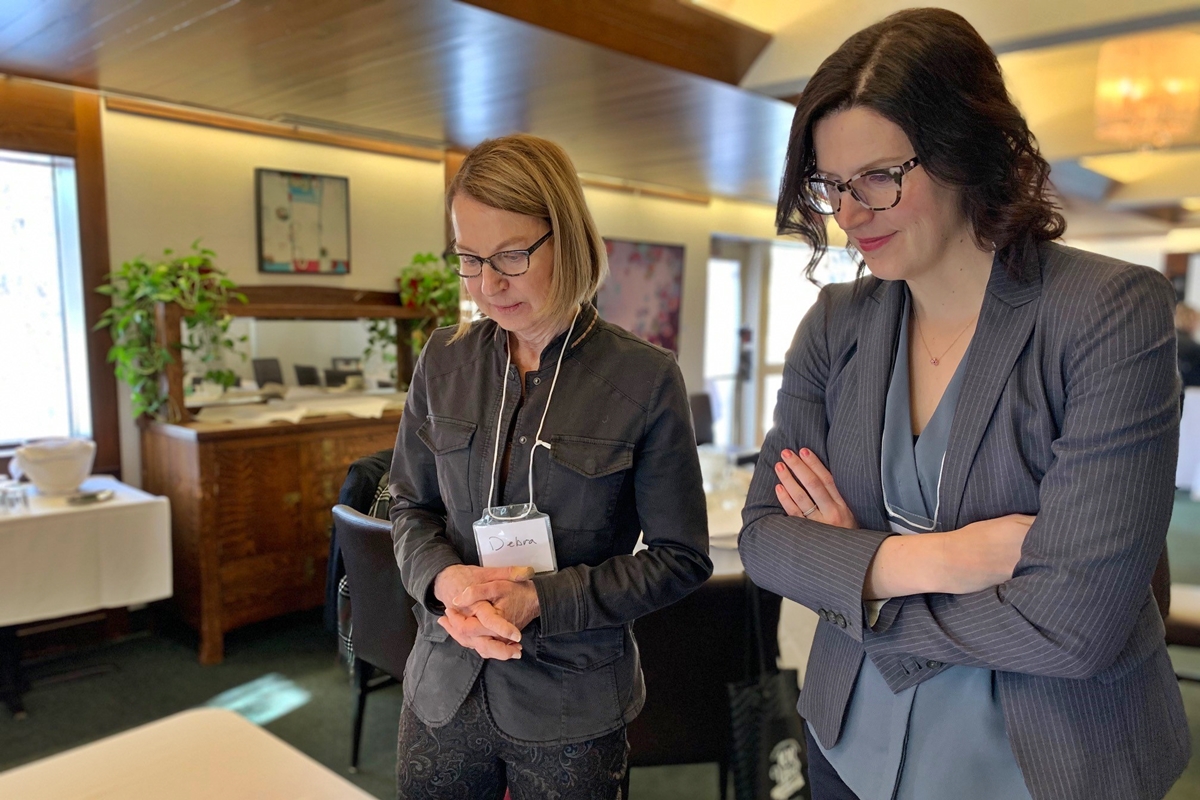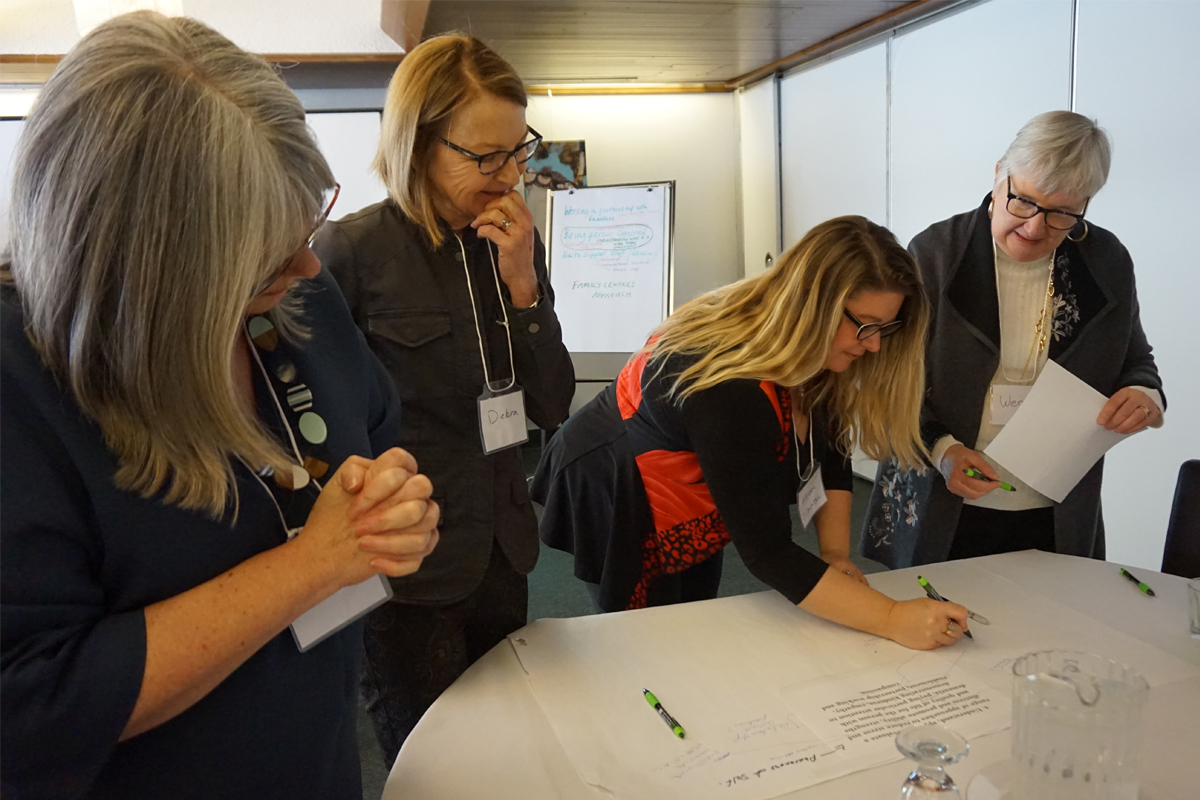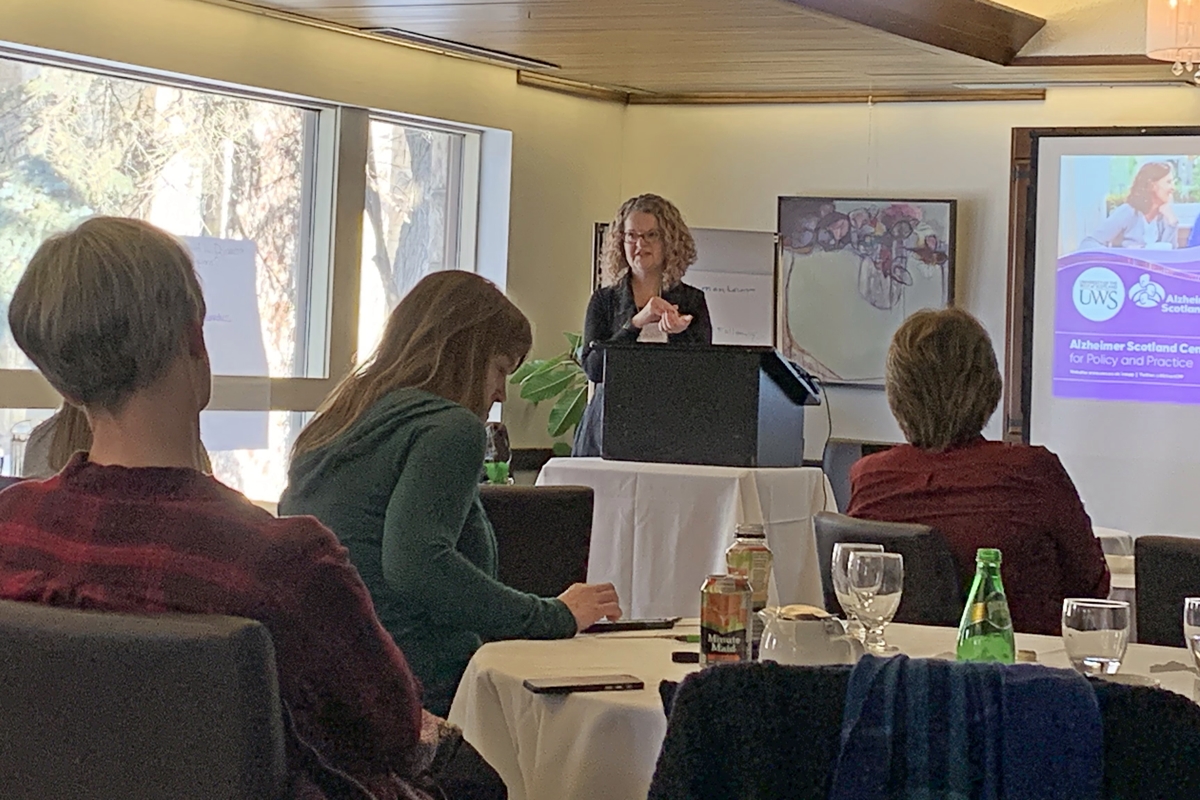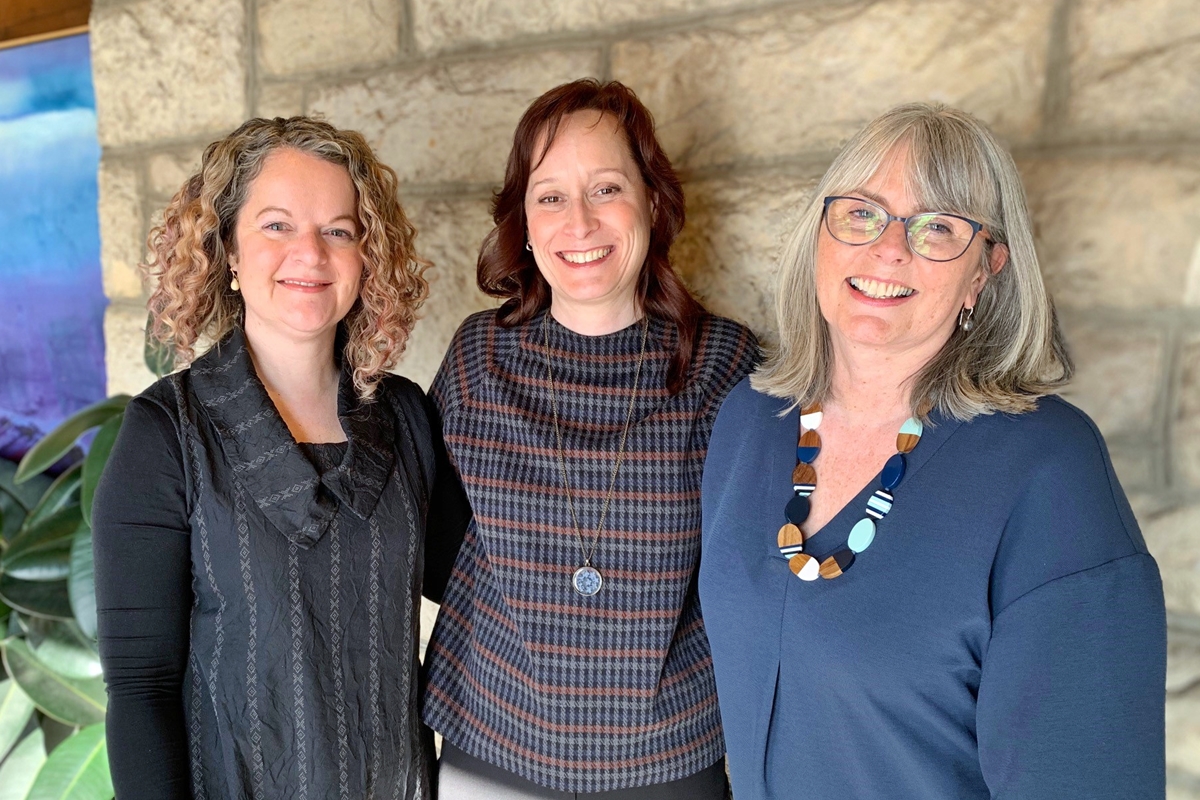
Championing Dementia Care Education for Health Care Professionals
Researcher Dr. Shelley Peacock hosts meetings to advance dementia care education in Canada.
For the first time, an international event to develop dementia education for health care professionals was held in Saskatoon last week.
Dementia is often associated with increased age, but it is not a normal part of ageing. As the disease progresses, it is more than forgetfulness and may also cause disturbance in judgment and insight, changes in personality and/or becoming disoriented. Each person living with dementia is uniquely affected. Older people living with dementia often struggle because the environment they are in doesn’t support their unique needs. College of Nursing’s Dr. Shelley Peacock is interested in bringing a program to Canada that will provide enhanced dementia care education for health care professionals to better care for people living with dementia.
“There is an increasing number of older people living with some form of dementia and persons with dementia require access to health care services to assess, treat and manage their complex situations,” said Dr. Peacock. “In Canada, older people, many of whom live with some form of dementia, use a disproportionate amount of acute care services compared to younger people; yet, health care professionals are often inadequately educated about dementia.” A hospital admission can be devastating for an older person living with dementia.
Dr. Peacock has been partnering with colleagues Dr. Rhoda MacRae and Dr. Anna Jack-Waugh from the University of the West of Scotland to improve the care in acute care settings for older people living with dementia. On February 13th & 14th in Saskatoon, the research team brought together experts, including people with dementia and their family carers, researchers from Scotland and Canada and knowledge users. Dr. Peacock describes the purpose of the meetings as follows. “In 2011 the Scottish government commissioned the Dementia Champions Programme to address the often poor care people living with dementia and their family carers received in acute care settings. Since Canada does not have a dementia care education program for health care professionals working in acute care settings, my research team and I would like to adapt the Scottish program to the Canadian context.”
When asked about attending the meetings in Saskatoon, Drs. MacRae and Jack-Waugh said, “We are delighted to be able to share our learning from the Scottish Dementia Champions Programme with people living with dementia, their family carers, academics and educators from across Canada. The Canadian Institutes of Health Research have provided a great opportunity through this project to help manifest the vision of Canada’s National Dementia Strategy.”
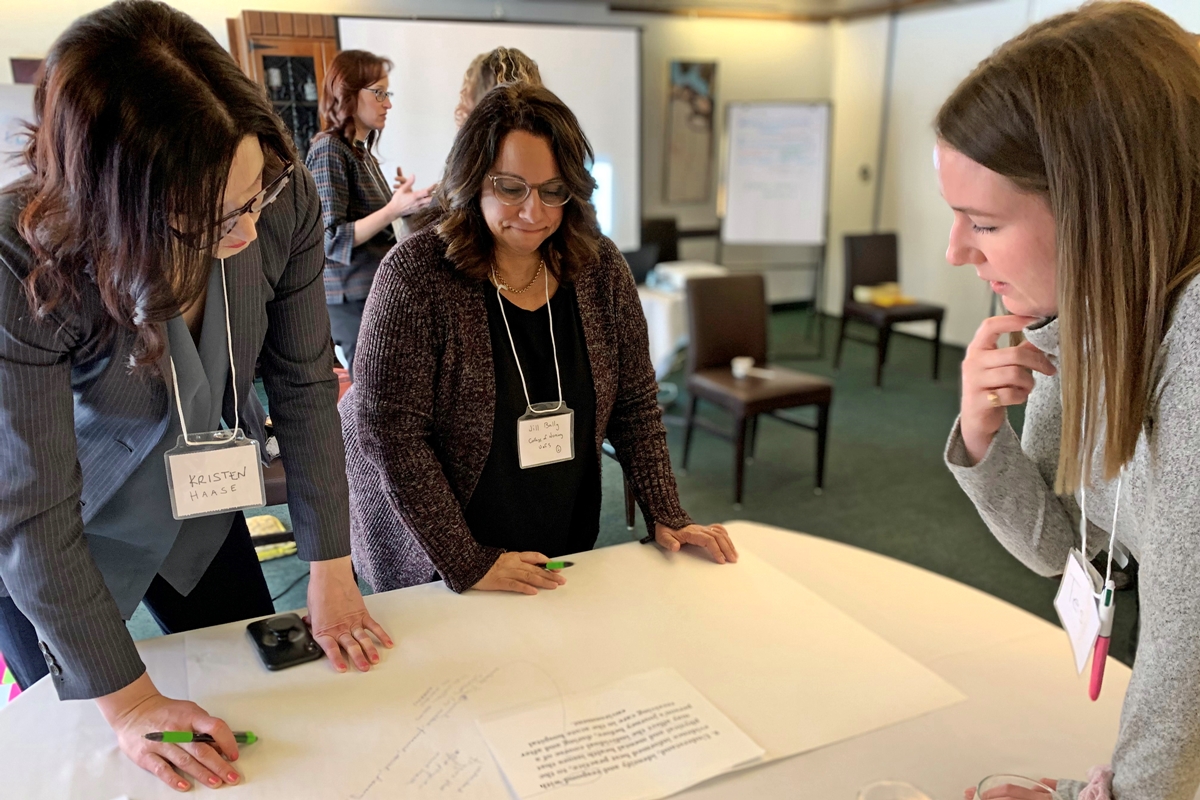
The work Dr. Peacock and her team completed over the course of the two-days will serve as the foundation for the creation of a pilot project to evaluate the adapted program in Canada in the near future. “Our hope is by piloting the adapted program here in Canada, we will see acute care health care professionals become better equipped to provide appropriate care for those with dementia,” said Dr. Peacock.
“The meetings were very educational; some of the stories shared by the attendees with dementia and their family carers in regards to the care they have received reaffirmed for us the overwhelming need for enhanced dementia care education for health care professionals,” said Dr. Peacock. “It was an opportunity for experts to work with the Dementia Champions Programme in great detail and think about the full application of a similar program in Canada.”


